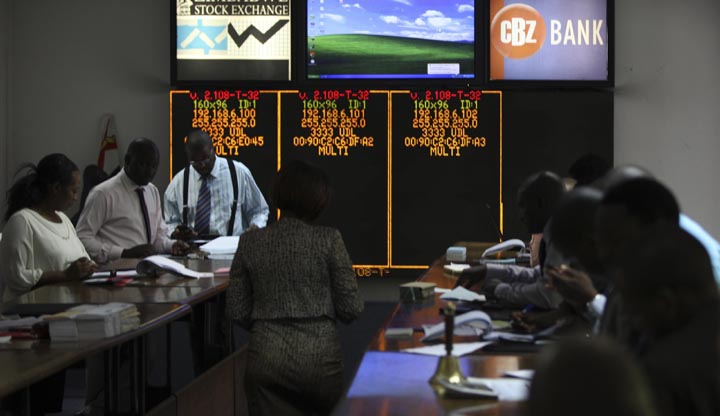The Zimbabwe Stock Exchange market capitalisation remained largely stable in September, shedding $500 000 to $2.81 billion but turnover nearly doubled.
In real terms, market capitalisation marginally shed 0.31 percent from $2.86 billion recorded in August. Monthly turnover increased by 90 percent to $13.41 million.
The main industrials index eased 0.30 percent to close at 98.96 due to losses in some heavyweights such as Delta and Econet which lost 6.98 percent and 1.01 percent respectively, outweighing gains in BAT of 1.67 percent.
Among the top movers were Innscor, Axia and Old Mutual adding 19.43 percent, 12.50 percent and 12.29 percent respectively.
Barclays and Padenga also gained 11.11 percent and 8.57 percent respectively.
Significant losses were recorded in PPC, Dairibord and ART, shedding 33.33 percent, 20 percent and 11.76 percent in that order.
Additionally, Lafarge and GetBucks eased 9.09 percent and 7.50 percent respectively.
The mining index gained 1.10 percent to 26.61 points on the back of the gains in RioZim, which increased from 17.10 cents in August to close at 17.48 cents in September.
Total volumes traded increased by 67.33 percent to 65.05 million shares.-The Source
Related stories:
Zimbabwe Stock Exchange monthly turnover down 38 percent
Zimbabwe Stock Exchange hits new low with trades of just $105
Zimbabwe Stock Exchange gains for first time in 14 months
Investors on Zimbabwe Stock Exchange lose $400 million in three months
Zimbabwe Stock Exchange loses $1billion value in first half bloodbath
(26 VIEWS)







0 Comments